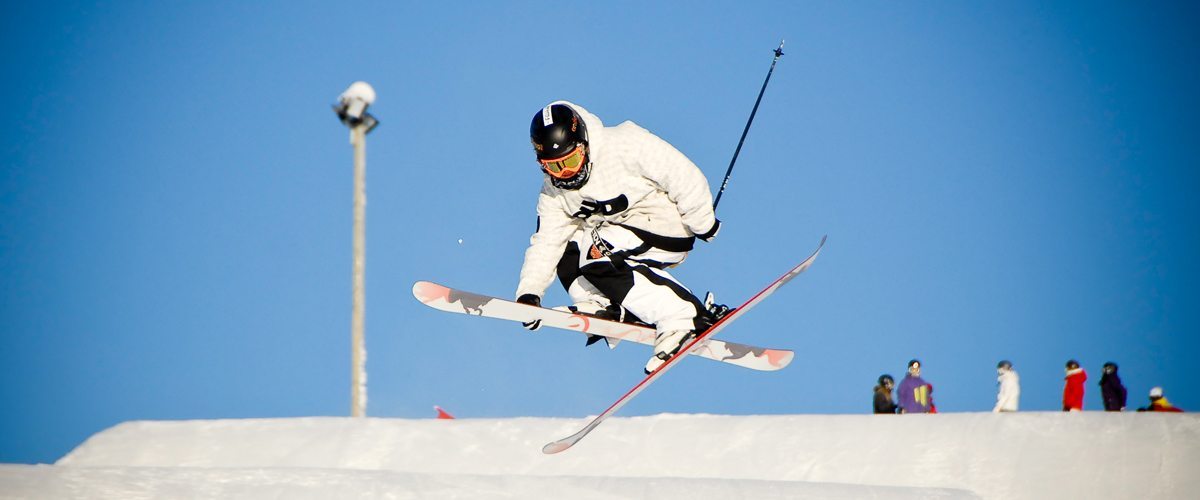Freestyle Skier Tanner Hall Latest Athlete to Voice Support for Cannabis
X-Games freestyle skier Tanner Hall expressed support for athletes being allowed to use cannabis in a March interview with The New Yorker. He’s the latest of several professional athletes that have recently voiced concerns regarding the prohibition of cannabis and how the ban adversely affects the health of athletes.
Discussions over the presence of cannabis in sports have been trending as of late, as new research has revealed the prevalence of brain trauma in athletes participating in contact sports. Repetitive blows to the head can cause chronic traumatic encephalopathy (CTE), leading to blood vessel damage and nerve injury in the brain. However, preclinical studies have found that cannabinoids found in cannabis, specifically cannabidiol (CBD), have the capability to decrease brain swelling, limiting neurological damage, and improve recovery following high-impact events and reduce both acute and chronic pain.
In a new article published in The New Yorker, Tanner Hall, considered to be one of the greatest contemporary freestyle skiers, argued that using cannabis can help athletes also reduce anxiety and control pain.
“I used it when I competed at the X Games,” he explained to Charles Bethea. “It helps with the stress, with the anxiety. And then, afterwards, as a relaxing agent and pain reliever. When your body is all tensed up, if you’ve got a pinched nerve or something, chron helps with that.”
The Right to Cannabis: Athletes Speak Out
For extreme athletes like Hall, cannabis is prohibited by the World Anti-Doping Agency. It is also banned in the National Football League (NFL), Major League Baseball (MLB) and the National Basketball Association (NBA), and players are tested regularly. Even CBD derived from hemp oil, which is legal to purchase and consume throughout the U.S., is banned by major athletic organizations.
Hall is just the latest of many athletes speaking out about the therapeutic benefits of cannabis. Current and former NFL players are challenging the NFL to change its stance on cannabis prohibition. Nate Jackson, a former tight end for the Denver Broncos, has spoken publicly to encourage the NFL to change its stance.
“I feel like I exited the game with my mind intact. And I credit that to marijuana in a lot of ways and not getting hooked on these pain pills that are recklessly distributed in the league when a guy gets an injury,” said Jackson at the 2015 “Sports, Meds and Money” conference in Denver. Jackson admitted to self-medicating with marijuana during his career, despite the risk. “It kept my brain clean,” he said. A 2013 survey by ESPN found that seventy percent of NFL prospects used marijuana in college.
Former NFL defensive end Marvin Washington is an advisory board member and spokesperson for Kannalife Sciences, a Medical Marijuana Inc. portfolio company that is currently researching CTE and developing CBD therapies for treatment.
“I’m on a CBD regimen,” Washington explained to ESPN’s Outside the Lines (OTL) last December. “I eat a fortified diet, and I think all ex-players should do this.” He later added, “So many guys suffer in silence and pain, and it doesn’t have to be that way.” With Washington’s help, Kannalife is working to raise awareness for CTE research with a social media-driven campaign titled “Show Your Green.”
Earlier this month, current Baltimore Ravens’ offensive tackle Eugene Monroe donated ten thousand dollars to the Realm of Caring Foundation, a nonprofit marijuana-research group that supports people using marijuana to treat injuries. On Twitter, Monroe encouraged other players to do the same. He wrote, “Let’s put our hard earned money towards our health and wellness futures.”
He continued his message with several more tweets. “People all over the country are being HEALED through use of CBD products,” Monroe wrote. “Each week during the season NFL teams embrace families of very sick children whom are fighting for their lives. Let’s fund CBD research, as it is continually proven to have a real impact on the lives of those children and their families.”
Monroe spoke with Sports Illustrated’s Doug Farrar later in the day following his barrage of Twitter messages. “Marijuana is something that was made illegal without any scientific basis, so we now have tons of people who view it in a negative light, for no scientific reason,” Monroe told Farrar. “I am just saying that it’s time to look into the research, and see about the benefits it can have for our athletes.”
Potential Changes to Cannabis Rules in Sports: Looking Ahead
Historically, the NFL has been hesitant to acknowledge the correlation between football-related head trauma and CTE. Many have even accused the organization of hiding the danger of head injuries. According to an investigative article by the New York Times published just this week, the NFL’s concussion research that was intended to account for all concussions diagnosed between 1996 and 2001 was excluding more than 100 diagnosed cases.
However, earlier this month, Jeff Miller, the NFL’s senior vice president for health and safety policy, did acknowledge the correlation. When asked at a roundtable discussion on concussions whether “there is a link between football and degenerative brain disorders like CTE,” Miller responded, “The answer to that is certainly, yes.”
As more athletes speak out and more research reveals the therapeutic potential of CBD, hopefully organizations like the X-Games, NFL, MLB, and NBC change their stances on cannabis use. Until then, athletes must risk their careers by secretly using a banned substance.
“A lot of athletes use a lot of marijuana for good reason,” Hall added in his interview with The New Yorker. “I think you’d be surprised how many do it, at a high level.”]]>






